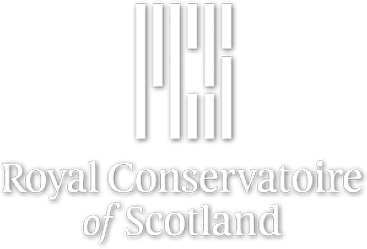‘Damage to trees’: Performing Ramsay’s The Gentle Shepherd at Haddington Grammar School: A theory and its scholarly impact.
Research output: Contributions to journals › Article › peer-review
Contributors
About
Allan Ramsay’s (1684-1758) seminal work The Gentle Shepherd has, since its first publication in 1725, had a long and rather complex performance history. Initially penned as a play, it was revised and published as a ballad opera in 1729. In its ballad opera form, The Gentle Shepherd was performed at Aberdeen, Edinburgh, London, North America and Australia throughout the eighteenth and nineteenth centuries. More editions of the ballad opera have been produced over the centuries than the original play, with editors from 1758 on often incorporating music notation, presumably to help facilitate the performance of the songs. Indeed, Ramsay’s manuscripts and print publications only included a brief reference to the tune for each song and did not provide music notation or specific performance instructions, for example an indication as to whether the songs should be accompanied.
However, this article will specifically examine the first performances of the ballad opera, highlighting where there are archival gaps and how this has affected scholarly understanding of its early performance history. Recent scholars, including Murray Pittock (2019), Ian Brown (2011), Rachel Cowgill and Peter Holman (2007) have used evidence from Ramsay’s manuscripts and publications to address certain gaps, including when and where the first performances took place, and yet specific details about these early productions are scant. Corroborating evidence from newspapers and the Haddington Council Minutes assert that The Gentle Shepherd was performed in August 1729 at Haddington Grammar School, with new evidence revealing that this production took place on a stage erected outdoors. Such a revelation poses new questions about the manner in which the twenty-two songs in the ballad opera were performed, if they were performed at all.
As such, this article will consider why scholars have suggested it was the ballad opera production that was performed by the grammar school boys in 1729 and if such a performance was feasible at this time. Under consideration is the musical education on offer at the grammar school during this period, which archival evidence suggests was a contentious issue. The music master, Patrick Begbie, was ‘disposed’ of in December 1730 and replaced with David Young who would become Master of the Grammar School in 1731. If music had played such an important role in The Gentle Shepherd in 1729, then why was the music master removed from his post just over a year later? While the article will offer new insights into the August 1729 production of The Gentle Shepherd with the aim of filling certain historical gaps, it will also acknowledge that there is still a lot of missing information about the early performances of this work. No doubt, such missing information will continue to inspire scholars to dig deeper in the hopes of uncovering key information that provides clear and specific details about Scotland’s first ballad opera.
However, this article will specifically examine the first performances of the ballad opera, highlighting where there are archival gaps and how this has affected scholarly understanding of its early performance history. Recent scholars, including Murray Pittock (2019), Ian Brown (2011), Rachel Cowgill and Peter Holman (2007) have used evidence from Ramsay’s manuscripts and publications to address certain gaps, including when and where the first performances took place, and yet specific details about these early productions are scant. Corroborating evidence from newspapers and the Haddington Council Minutes assert that The Gentle Shepherd was performed in August 1729 at Haddington Grammar School, with new evidence revealing that this production took place on a stage erected outdoors. Such a revelation poses new questions about the manner in which the twenty-two songs in the ballad opera were performed, if they were performed at all.
As such, this article will consider why scholars have suggested it was the ballad opera production that was performed by the grammar school boys in 1729 and if such a performance was feasible at this time. Under consideration is the musical education on offer at the grammar school during this period, which archival evidence suggests was a contentious issue. The music master, Patrick Begbie, was ‘disposed’ of in December 1730 and replaced with David Young who would become Master of the Grammar School in 1731. If music had played such an important role in The Gentle Shepherd in 1729, then why was the music master removed from his post just over a year later? While the article will offer new insights into the August 1729 production of The Gentle Shepherd with the aim of filling certain historical gaps, it will also acknowledge that there is still a lot of missing information about the early performances of this work. No doubt, such missing information will continue to inspire scholars to dig deeper in the hopes of uncovering key information that provides clear and specific details about Scotland’s first ballad opera.
Details
| Original language | English |
|---|---|
| Journal | Theatre Notebook |
| Publication status | Accepted/In press - 21 Jun 2021 |
